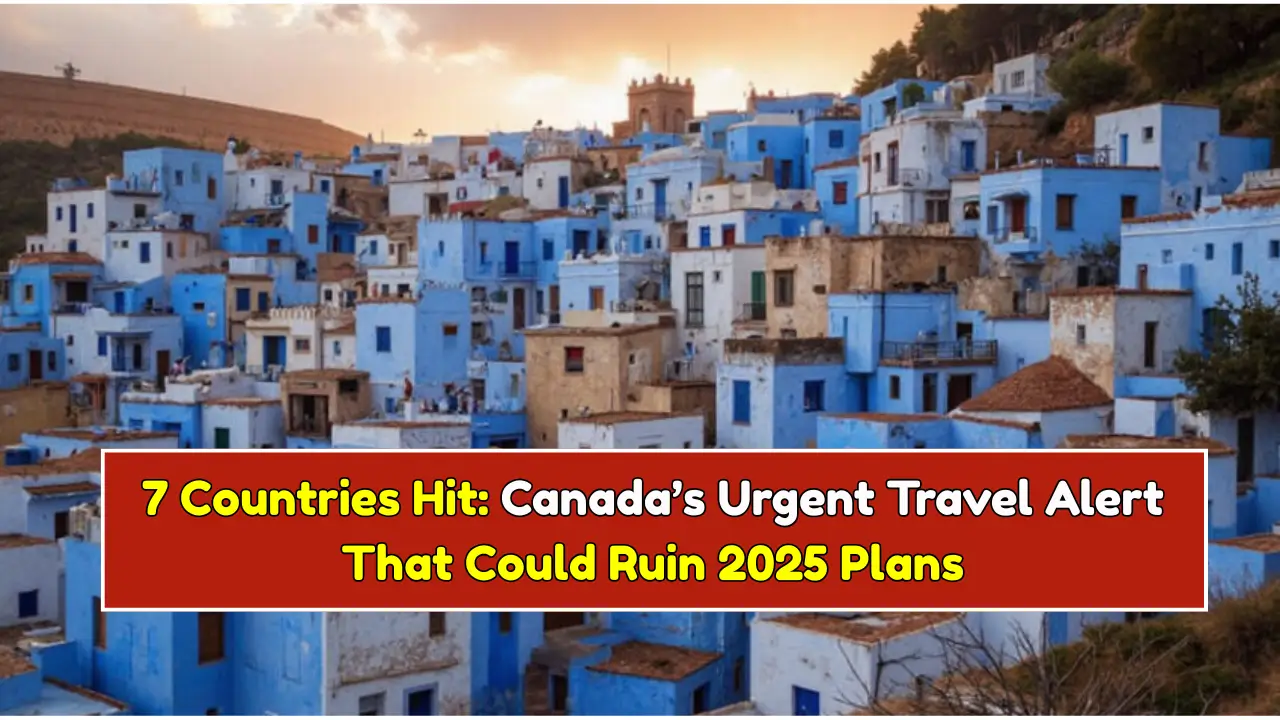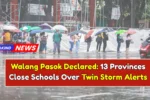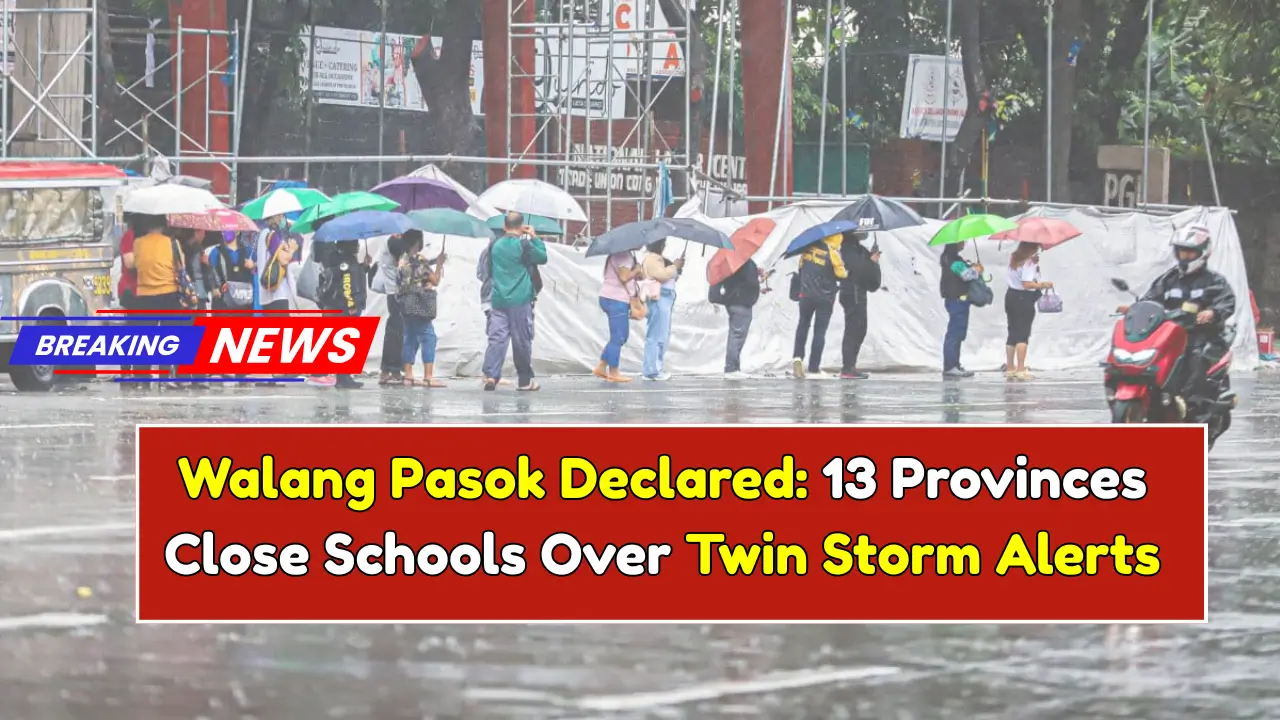With global unrest and localised threats on the rise, Canada has recently updated its travel advisories, notably adding Morocco to a critical list that already includes the Philippines, Spain, Saudi Arabia, Mexico, Egypt, Ecuador, and Türkiye.
This development underscores the growing complexity of international travel in 2025 and highlights the necessity of vigilance as security incidents and disruptions increase worldwide.
Background: Why has Canada Issued These Advisories?
Canada’s travel advisories are rooted in ongoing evaluations of security, political stability, health concerns, and civil unrest in countries where Canadian citizens commonly travel.
Multiple regions are experiencing political tensions, terrorism threats, social demonstrations, and sometimes, logistical disruptions in transport and communication networks.
By increasing the advisory level, Canada signals to its citizens the need for heightened caution, preparation, and situational awareness when travelling to these countries.
Focus on Morocco: Recent Developments
Morocco, traditionally a popular destination for European and North American visitors, has witnessed a marked increase in civil unrest and political demonstrations in recent months.
Canadian authorities have advised all travellers to exercise a high degree of caution, especially after demonstrations involving violence and reports of crowd control actions by security forces across the country.
Beyond general civil unrest, there are also specific warnings for:
- Avoiding all travel to regions within 30 km of the Berm (bordering Western Sahara) and border areas with Algeria due to unpredictable security conditions and possible violence.
- Exercising caution near large gatherings, public transport hubs, and major tourist sites due to terrorism threats and possible disruption.
- Realising consular support is extremely limited in Western Sahara and other high-risk border areas.
Table: Canada’s Travel Advisory Status (October 2025)
| Country | Advisory Level | Key Concerns | Regional Notes |
| Morocco | Exercise a high degree of caution | Terrorism, civil unrest, demonstrations | Avoid border with Western Sahara/Algeria |
| Philippines | Exercise a high degree of caution | Terrorism, crime, armed conflict, natural disasters | Regional advisories in Mindanao |
| Spain | Exercise a high degree of caution | Occasional demonstrations, petty crime, terrorism | Pickpocketing in tourist areas |
| Saudi Arabia | Exercise a high degree of caution | Terrorism, missile/drone threats, strict laws | Near Yemen border and Eastern Province |
| Mexico | Exercise a high degree of caution | Organised crime, violence, kidnapping | Avoid certain northern and coastal states |
| Egypt | Exercise a high degree of caution | Terrorism, political tensions, sporadic violence | Sinai Peninsula and Western Desert |
| Ecuador | Exercise a high degree of caution | Crime, political protests, volcanic activity | Some cities/volcano regions higher risk |
| Türkiye | Exercise a high degree of caution | Terrorism, political instability, demonstrations | Southeastern border regions |
The table shows that “Exercise a high degree of caution” is the predominant guidance, but in several territories (border zones, conflict areas), complete or partial travel bans may apply for Canadian citizens.
Common Triggers for Security Advisories
Travel advisories are not issued lightly. The most common triggers in the current landscape include:
- Terrorism: Coordinated international or regional threats, particularly in locations frequented by tourists.
- Social/Political Unrest: Protests can escalate rapidly, disrupting travel or triggering violent responses from local authorities.
- Border Conflicts: Rising military activity near national frontiers (e.g., Morocco-Algeria, Saudi-Yemen, Türkiye-Syria) increases danger to non-locals.
- Structural Issues: Threats to transportation infrastructure—such as airport closures, transport strikes, or digital network risks—can strand visitors unexpectedly.
- Consular Limitations: In certain high-risk zones, Canadian embassies and consulates may be unable to reach or assist their nationals in crisis situations.
Implications for Travellers
Disruptions to Travel Plans
Recent months have seen episodes of mass demonstrations, police actions, and transportation stoppages in several of these countries. These can result in:
- Delays or cancellations of flights, trains, and public transport
- Curfews and sudden closure of public spaces
- Stranded visitors requiring emergency evacuation or shelter-in-place orders
- Difficulties in reaching local authorities or the Canadian embassy during periods of intense unrest or natural disasters.
Personal Safety and Emergency Preparedness
Canadian travellers are now urged to:
- Monitor local and Canadian government news for the latest updates
- Heed instructions from local authorities and avoid demonstration areas
- Keep identification and travel documents readily available
- Maintain emergency supplies and make contingency plans for extended disruptions
- Avoid high-risk regions as specifically outlined in each advisory
Regional Advice: Morocco as a Case Study
- Violence and crowd control issues can arise rapidly during protests, often centred in urban areas like Casablanca, Rabat, and Marrakech.
- Moroccan security forces are known for quick and sometimes forceful responses—travellers are best advised to avoid all demonstrations and maintain a low profile.
- Travel to the borders with Western Sahara and Algeria is considered very dangerous; all non-essential movement should be postponed or routed away from these areas.
Broader Impact: Tourism, Business, and Diplomatic Activity
Effect on Tourism
Elevated advisories have an almost immediate effect on tourism numbers, sometimes leading to mass cancellations of pre-booked tours, reduced airline traffic, and shrinking hotel occupancy rates.
With Morocco joining several other popular destinations on the list, travel and hospitality industries in these countries are bracing for a downturn in Canadian and international visitors.
Consequences for Business Travel
Organisations with business ties in these nations are reviewing security protocols and contingency plans. Essential personnel may still travel but will do so with enhanced security arrangements and the expectation of frequent itinerary changes or interruptions.
Diplomatic Dialogue
Canada’s advisories also nudge local governments to address security, improve law enforcement cooperation, and guarantee safe passage and shelter for foreign nationals during emergencies. These notices are a critical channel of non-verbal diplomatic feedback in world affairs.
Key Takeaways and Travel Precautions
Travellers with plans to visit Morocco, the Philippines, Spain, Saudi Arabia, Mexico, Egypt, Ecuador, and Türkiye are strongly encouraged to:
- Review the Government of Canada’s travel advice before departure and during their stay
- Register with the Registration of Canadians Abroad (ROCA) service for efficient communication in a crisis
- Maintain good communication with family and friends regarding travel plans
- Stay flexible and be prepared for modifications to their journey at short notice.
Frequently Asked Questions (FAQs)
1. Why did Canada add Morocco to its increased risk travel advisory list?
Morocco has seen more civil unrest, political demonstrations, and local security threats, prompting Canada to urge citizens to exercise a high degree of caution.
2. What does ‘Exercise a high degree of caution’ mean for travellers?
This means there are identifiable risks, such as terrorism or civil disorder, and travellers should stay alert and prepare for possible disruptions during their stay.
3. Are there any countries on Canada’s list where all travel should be avoided?
Yes, in specific conflict areas and for regions experiencing ongoing warfare or terrorism, Canada sometimes issues ‘Avoid all travel’ advisories; in Morocco’s case, border regions with Algeria and Western Sahara are included.
4. What should Canadian nationals do if they are already in a country with an advisory?
Canadians in advisory countries should follow local authorities’ guidance, keep in contact with the Canadian embassy, avoid crowds and demonstrations, and consider leaving if conditions deteriorate rapidly.
5. Do these advisories affect tourism or business activities?
Yes, heightened advisories can lead to trip cancellations, reduced tourism, and strict review of security arrangements for business travels, impacting local economies in significant ways.












